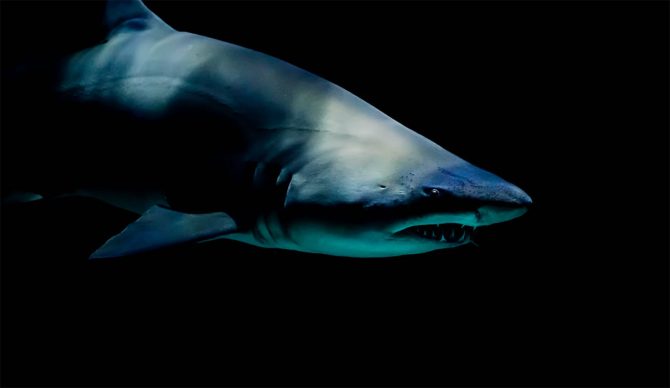
According to a “study” for Discovery Channel’s Shark Week, it’s not out of the realm of possibility that sharks are chowing down on lost bales of cocaine. Photo: Unsplash
It’s not super uncommon for bales of cocaine to wash up on beaches or be discovered floating around in the ocean. Hell, 3.5 tons was found not all that long ago, just bobbing around in the Pacific waiting for a cigarette boat to come and get it. Well, according to a new study — for the Discovery Channel’s Shark Week, so maybe take this with a grain of salt — sharks might be eating lost blow.
According to Live Science, in June alone, the U.S. Coast Guard seized over 14,100 pounds of cocaine in the Caribbean Sea and Atlantic Ocean, with an estimated value of $186 million.
“With so much cocaine entering the waters, Tom ‘The Blowfish’ Hird wanted to find out whether the thousands of sharks off Florida were ingesting the dumped narcotics, and — if so — whether the drugs were having any impact on them,” Live Science wrote. “In ‘Cocaine Sharks,’ which is part of Discovery’s Shark Week, Hird and University of Florida environmental scientist Tracy Fanara carry out a series of experiments to find out.”
It’s extremely likely that their study would never have happened if it weren’t for the recent popularity of Cocaine Bear, a film loosely based on a bear that ate 75 pounds of coke. Shark Week producers seem game to hang on to a coat tail or two in the name of public interest.
According to Live Science, the team devised three experiments to see whether sharks would/are eating cocaine. First, they dropped a bunch of packages in the water that looked like bales of cocaine. They put them next to a bunch of fake swans, just to see which one the sharks preferred. And you’ll never guess what happened: the sharks went for the drugs.
In the next test, they made a bait ball from fish powder, “which would trigger a dopamine rush as close to a hit of cocaine as the team could feasibly (and ethically) do.” The sharks, apparently, went bonkers.
“I think we have got a potential scenario of what it may look like if you gave sharks cocaine,” Hird said in the film. “We gave them what I think is the next best thing. [It] set [their] brains aflame. It was crazy.”
In the final test, the team dropped a few bales of fake coke from a plane in an effort to emulate a real drug drop. Multiple different kinds of sharks showed interest in the dropped bales.
Of course, their experiments were for a television show and by no means actually prove that sharks are, in fact, turning into raging drug addicts.
“We have no idea what [cocaine] could do to the shark,” Hird told Live Science. He went on to explain that different fish react in different ways to different chemicals. “So we can’t even say ‘well, this is a baseline’ and go from here… The other thing we might find is actually this long flow, [this] drip of pharmaceuticals: caffeine, lidocaine, cocaine, amphetamine, antidepressants, birth control — this long slow drift of them from cities into the [ocean] is… starting to hit these animals.”
If you’re into that kind of thing, Cocaine Sharks is on the Discovery Channel at 10 p.m. ET/PT on Wednesday, July 26.

